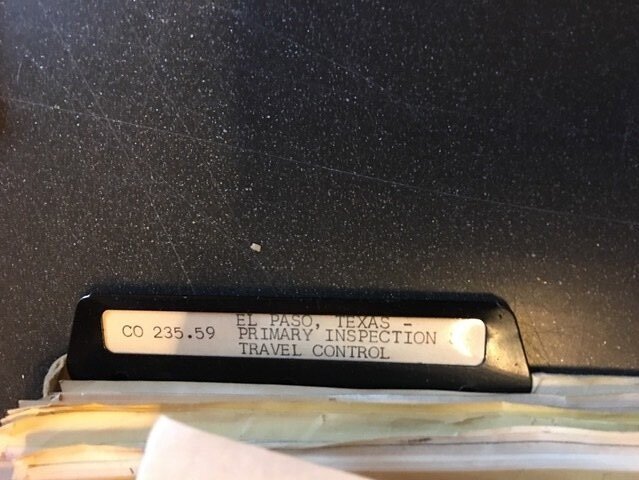Advocates and Historians Call on National Archives to Retain Records on CBP Misconduct

Last week, I worked with advocates at several organizations on a comment to the Federal Register urging the National Archives to retain records regarding misconduct by the Customs and Border Patrol (CBP) that the agency wants to destroy. However, the preservation of these files is essential. This comment was an imperative for me both as a senior advocate at Refugees International and as a historian.
These records must be preserved to hold CBP accountable for abuse. On several trips for Refugees International in 2019 and early 2020, I interviewed asylum seekers whose treatment by CBP agents and while in CBP custody spanned a spectrum from cursory dismissal, to cruel insults, to outright mistreatment. Three days after an event I moderated this summer regarding humanitarian aid for missing migrants featuring a representative from the humanitarian border group No More Deaths, CBP raided its camp and destroyed its supplies. And on the day after we submitted the records retention comment, the Department for Homeland Security’s Inspector General reported to Congress that money appropriated for asylum seekers’ medical care and food was used by CBP to buy office supplies and restraints. Staff of the Department of Homeland Security’s Civil Rights and Civil Liberties (CRCL) Division—whose files related to complaints about CBP are among those slated for destruction—recently claimed CBP was ignoring their concerns about the agency’s intention to use force and “chemical deterrents” at the border.

Historic records are an essential tool for effective advocacy in the present and into the future. For several years before 2019, I spent much of my time at the National Archives combing through records of the Immigration and Naturalization Service (INS), the agency in charge of handling immigration matters in the United States before it was subsumed by the Department of Homeland Security (DHS) in 2002. The INS records at the National Archives are extremely rich: they include case files and interviews with those seeking refuge and policy files and correspondence from within the agency. But the records dried up in the 1970s because DHS has delayed transferring old INS files over to the National Archives. As a historian of asylum, this was frustrating. The archival paper trail ended just after the United States acceded to the UN Convention Related to the Status of Refugees and created an administrative process whereby those who reached the United States could apply for asylum. So the history of asylum seeking and the development of asylum policy in the United States—now over forty years old—remains hard to access. This has important implications today because the Trump administration claims that its policies eviscerating asylum are legal, what Congress intended, and truer to the essence of asylum policy in the United States. I know from having requested some INS records through Freedom of Information requests and from finding fragments of them in private collections that their fuller and more widespread availability would serve as a powerful tool to show that the Trump administration’s interpretation is wrong.

Retention of the CBP records is about accountability. CBP employs 44,000 agents and has a budget of almost $17 billion. But it lacks effective oversight and disciplinary mechanisms. Advocates learned of horrible conditions for children in CBP custody at Clint, TX only because they had unusual access to the facility as Flores settlement monitors. Most complaints by migrants or by advocates to CRCL or to CBP’s office of professional responsibility go nowhere and certainly do not lead to Congressional or Inspector General reports. So these records are the only archive of misconduct and abuse. But retaining the records is also about posterity. We will not be able to formulate appropriate policy if we do not have a full picture of policy in the past.
Photo Credit: “U.S. National Archives” by afagen is licensed with CC BY-NC-SA 2.0. To view a copy of this license, visit https://creativecommons.org/licenses/by-nc-sa/2.0/